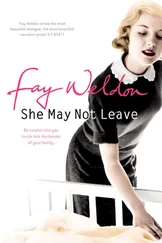Fay Weldon - The Bulgari Connection
Здесь есть возможность читать онлайн «Fay Weldon - The Bulgari Connection» — ознакомительный отрывок электронной книги совершенно бесплатно, а после прочтения отрывка купить полную версию. В некоторых случаях можно слушать аудио, скачать через торрент в формате fb2 и присутствует краткое содержание. Жанр: unrecognised, на английском языке. Описание произведения, (предисловие) а так же отзывы посетителей доступны на портале библиотеки ЛибКат.
- Название:The Bulgari Connection
- Автор:
- Жанр:
- Год:неизвестен
- ISBN:нет данных
- Рейтинг книги:5 / 5. Голосов: 1
-
Избранное:Добавить в избранное
- Отзывы:
-
Ваша оценка:
- 100
- 1
- 2
- 3
- 4
- 5
The Bulgari Connection: краткое содержание, описание и аннотация
Предлагаем к чтению аннотацию, описание, краткое содержание или предисловие (зависит от того, что написал сам автор книги «The Bulgari Connection»). Если вы не нашли необходимую информацию о книге — напишите в комментариях, мы постараемся отыскать её.
The Bulgari Connection — читать онлайн ознакомительный отрывок
Ниже представлен текст книги, разбитый по страницам. Система сохранения места последней прочитанной страницы, позволяет с удобством читать онлайн бесплатно книгу «The Bulgari Connection», без необходимости каждый раз заново искать на чём Вы остановились. Поставьте закладку, и сможете в любой момент перейти на страницу, на которой закончили чтение.
Интервал:
Закладка:
Sometimes she suspected Dr Doom was in Barley’s pay.
As for the Manor House, where she and Barley had spent so many good years, Jamie Doom could not seem to understand why the thought of Doris Dubois changing its name to Wild Oats and tearing it to bits so upset her. ‘You told me you didn’t like the place,’ he said. ‘Too big, too gloomy and too ostentatious.’
A hundred acres and peacocks which kept them awake at night, built by an 1860 version of Barley, who had made his money in railways, and tried to design it himself, all dark panelling and echoey plumbing. They’d moved in when Carmichael was six: when Barley made his first million. She’d wanted to stay where she was, with Carmichael at the local school, friends with other parents, a small garden to record the passage of the seasons, the familiar and the safe, down-market according to her parents’ looks when they came to visit, but fine by Grace. But how Barley wanted to take the look off their faces. If he thought he’d do it by moving the family into the Manor House he was mistaken. ‘A little ostentatious, darling,’ they had said. ‘But if you like it …’
And then there’d been the matter of the two Rolls-Royces. Grace had begged Barley not to, but nothing would stop him. In the year Carmichael was born both her sisters married: Emily to an estate manager in Yorkshire, Sara to a stockbroker in Sussex. Both had big weddings. Barley insisted on arriving in a hired Rolls: it was money they could hardly afford at the time. Grace had assured her husband that there were other ways of demonstrating his worth – surely her evident happiness was enough to keep her parents in their place, just about. But he wanted to impress, to sweep away their doubts, as he swept away hers.
When she first took him home the McNabs had taken him for a man of no education, some kind of building labourer. Within three months of his marriage to their daughter he’d been site foreman, within a year at business school, working and saving while Grace worked in a dress shop to pay the bills – a job at which she’d been spectacularly bad – and then into property, and able to buy two Rolls-Royces. But it was never enough for her parents, and could never be enough for Barley. Only Doris Dubois would turn out to be that.
Barley’s first crash came when Carmichael was nine. The bottom suddenly fell out of the property market. The millions vanished. He had prudently put the Manor House into Grace’s name, and the two Rolls-Royces too. Emily and Sara’s husbands had invested heavily in Barley’s business. They lost all they had too, including their houses. Grace wanted to sell the Manor House and share what there was. But Barley was against it.
‘Of course he would be,’ said Dr Doom, hearing the story. ‘You had to have somewhere to live. Others must be responsible for their own lives.’ If the Court hadn’t made going to therapy a condition of her freedom she would have got up and walked out there and then.
‘But the cars,’ she said.
‘What about the cars?’
‘Nobody needs two Rolls-Royces in the drive,’ she said. ‘It’s not as if I could drive. I wanted to sell them to help Emily and Sara, but he wouldn’t hear of it.’
‘Quite right,’ said Dr Doom. ‘The resale value of those cars is absurd.’
It was what Barley had said at the time. Since her prison sentence it had sometimes seemed to Grace that all men were the same man. It had certainly been the view of men enjoyed by most of her fellow inmates. They tended to have husbands and lovers who got drunk and beat them about, whom they wouldn’t leave because they loved them, but were nevertheless seldom inclined to speak well of men in general.
Sometimes, lately, Grace had felt nostalgia for prison. At least the place was well-peopled, albeit with a class of people to whom she wasn’t accustomed. She had even made a friend: Ethel, a bookmaker who had run off with her employer’s takings and earned three years for her pains. Ethel would be coming out in a couple of months; then Grace would find out how good a friend she was. Ethel might prefer to put the past behind her and Grace would understand it if she did.
Her own family had chosen to put any past which included her behind them, and she could understand that too. By the time Barley was declared bankrupt Grace’s sisters were not speaking to her, and her parents barely so. They felt not only justified in their initial suspicions of their eldest daughter’s husband, but that she had been tainted by him in some way. Nor did his return to prosperity impress them. They none of them came to visit her in jail. They’d felt they had put up with enough already when they opened the Telegraph one morning to find Grace’s picture staring back at them, portrayed as an aggrieved and murderous wife. She had only herself to blame.
9
Grace had been out of society for so long, embroiled in a divorce, a court case, a prison sentence, then the shock of the new in her gloomy, lonely apartment, that she easily misjudged what was going on around her. Even leaving Carmichael out of it, it was not surprising that she assumed Walter Wells was gay. It had become the tactic of many perfectly heterosexual young men to affect a misleading campness as if in self-defence: a softness of voice, a delicacy of movement, an all-pervasive irony of gesture. This they did to obviate the anticipated reaction of so many young women they approached. ‘ Don’t you lay hands on me, you rude, crude, heterosexual beast, you macho scum, all sex is rape, stop looking at me in that disgusting way, you’re harassing me, stalking me, go away! To take on the colours of gayness was to be given time and space to charm and flirt their way in, as Walter Wells now did into Grace Salt’s comprehension. She did not turn her head away: she recognised a fellow victim, a young man who might be Carmichael, someone with whom the world was not fully at ease, and so she consented to smile and talk to him, and have fellow feeling with him, and not turn her head stiffly away. ‘We both know how to suffer .’
It was true she had wondered where exactly Walter Wells’ self-interest lay. She was not naïve. She was well aware that beautiful and fashionable young men do not talk to unfashionable women and flatter them unless there is some deeper agenda at work. They do not sit smiling and chatting out of sheer goodness of heart, not to a depressed woman of a certain age, wearing an old dress found in the bottom of a suitcase snatched from home in her hurry to leave, a dress she wore on her honeymoon. (A shake and a cloud of dust and it had seemed to Grace as fit to wear as anything ever would.) But what could the agenda be? She did not look rich or important. She was not hung with jewels. She did not look like the kind of person who would commission a painting of herself, sitting as she did lonely and neglected in a corner, trying to be invisible. And besides, men did that: husbands, fathers, lovers, the kind of men Grace now, perforce, did without. Perhaps she reminded him of his mother? She decided that was it. He was a young man of charm and talent, lucky enough to have Lady Juliet’s sponsorship and attention, but he was sensitive and edgy, the artist amongst patrons, and insecure as befitted his age; and thus he had sought her out, dull and dowdy as she was.
When Barley had entered the room with Doris, flushed and pleased, and all conversation was stilled in acknowledgement of their presence, their celebrity status, Grace had felt what she later described as the ‘thickening of the blood in her veins’. Doris saw her, but looked through her as if she did not exist; which was to be expected. But Barley saw her and waved, and in this gesture Grace read the end of all intimacy. He did not even have the interest left to hate her. Her heart faltered; it could hardly get the blood round her body it was so sluggish, as if she’d gone out of a warm room into the sudden sharp and horrid cold of a blizzard. It was the cold of disappointment, the knowledge that Barley was gone from her forever. If it was not one painful truth which dawned in upon her, it was another.
Читать дальшеИнтервал:
Закладка:
Похожие книги на «The Bulgari Connection»
Представляем Вашему вниманию похожие книги на «The Bulgari Connection» списком для выбора. Мы отобрали схожую по названию и смыслу литературу в надежде предоставить читателям больше вариантов отыскать новые, интересные, ещё непрочитанные произведения.
Обсуждение, отзывы о книге «The Bulgari Connection» и просто собственные мнения читателей. Оставьте ваши комментарии, напишите, что Вы думаете о произведении, его смысле или главных героях. Укажите что конкретно понравилось, а что нет, и почему Вы так считаете.












